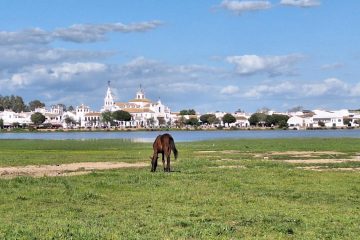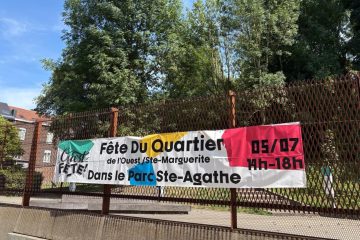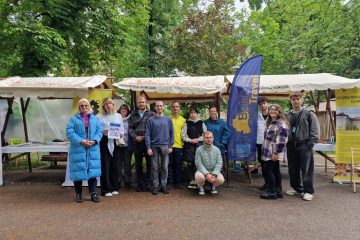As Kinga’s ESC experience with us comes to a close, she reflects in her blog on the highlights of her eight-month journey, looking back on the activities she carried out, her impact on the community, the challenges she faced and all the unforgettable moments that she will carry with her to Poland.
My project began in March of this year, and from the moment I arrived in Liège, I felt right at home. The volunteer program is excellently organized. The first two weeks in Belgium are dedicated to familiarizing oneself with the city, participating in mobility workshops, learning the most essential routes, taking French language lessons, and attending other organizational meetings. This period is designed to help newcomers acclimate to the city and meet new people. In my case, this orientation phase was shortened to just one week since my good sense of direction and language skills quickly made me feel confident and secure.
The local coordinator in Belgium is very supportive and helpful. I also have a mentor I can rely on for assistance in any new situations, such as visiting community offices, seeing a doctor, or booking concert tickets. Additionally, at the beginning of the project, the coordinator introduced me to a few locals whose interests seemed similar to mine. However, it didn’t take long for me to make new friends on my own.
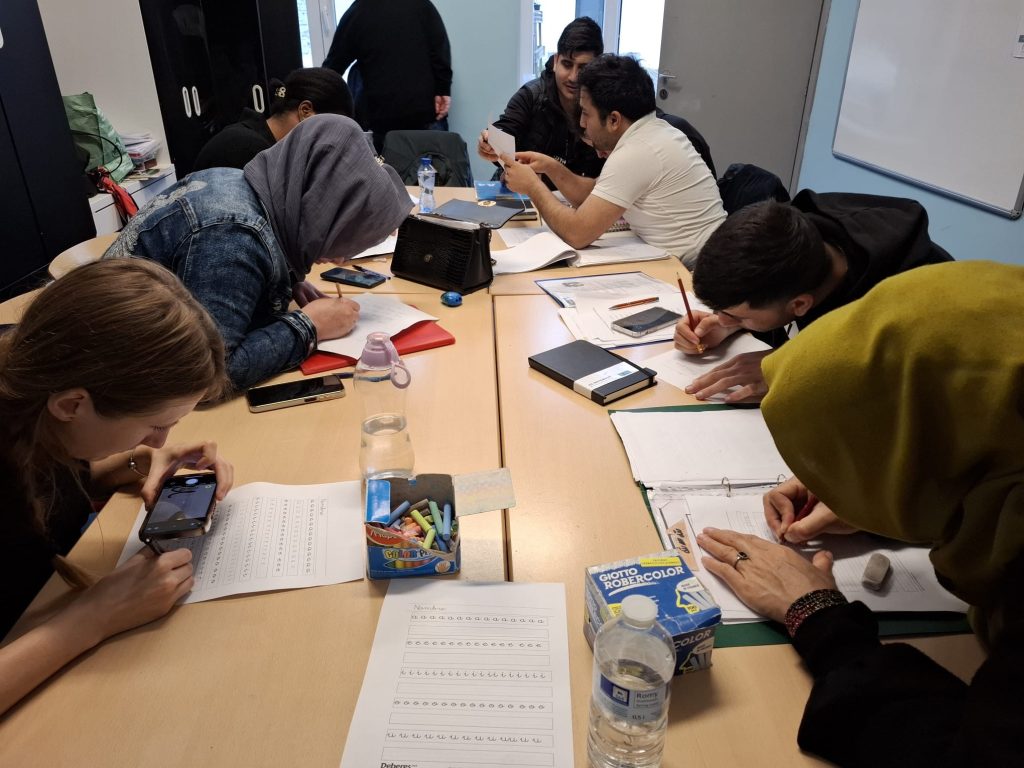
In my second week, I started working as an assistant in French as a Foreign Language (FLE – Français Langue Étrangère) classes for adult immigrants. I immediately developed a good rapport with Philippe, the teacher, and the students. During my first lesson, I managed to impress the group by demonstrating an alternative method for memorizing verb conjugations, known as the „shoe method”. Over time, our mutual affection grew, strengthened by casual conversations on the terrace during breaks. This motivated me to keep surprising the students with creative exercises.
In the following weeks, I had the opportunity to participate in various activities at both La Baraka and CSCSM. I assisted with evening French lessons for teenagers, worked with Alain in the office, attended regular meetings of local organizations where I represented VIEWS International, and participated in field activities for children during school breaks.
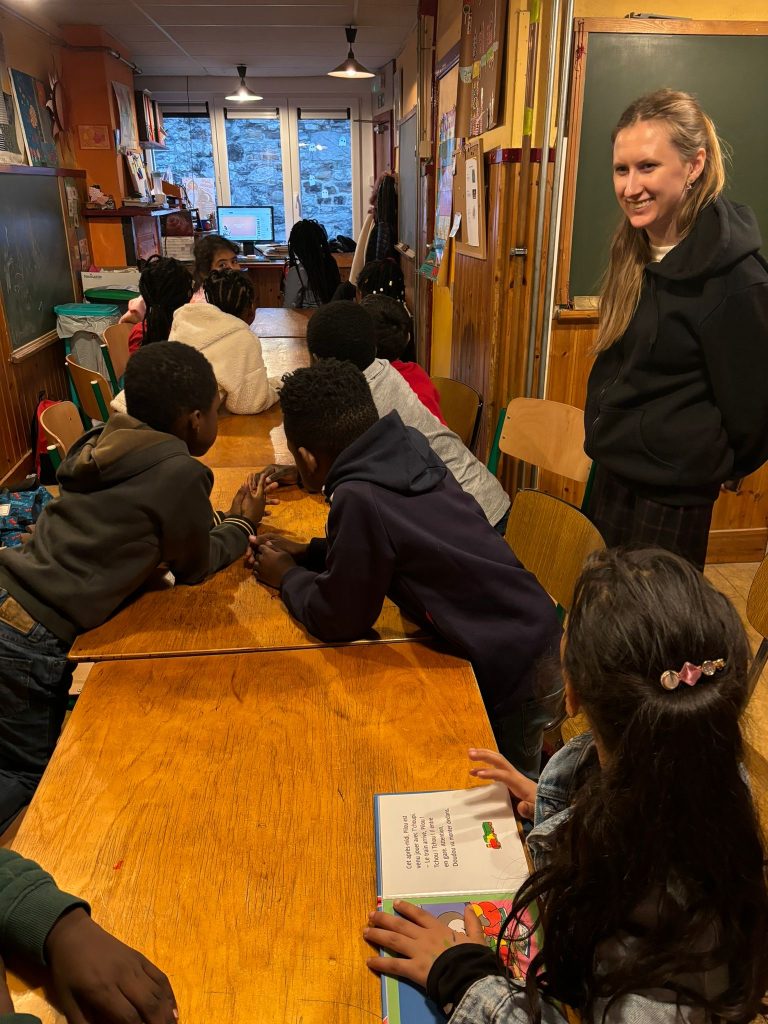
Eventually, my schedule took shape as follows: in the mornings, I helped with FLE classes for adults, and in the afternoons, I assisted children and teenagers with their homework at the “École de devoirs.” These sessions also allowed me to take part in extracurricular activities such as theater, sports, or art workshops, both within and outside the school. I also worked with middle school students, primarily helping them with English, but sometimes also with geography or science.
I contributed two articles to the local bimonthly magazine *Salut Maurice* and attended regular editorial meetings. For one of the articles, I played the role of a journalist, conducting interviews with representatives of a local initiative and creating a photo report. This task was both stressful and deeply rewarding.
A major advantage of volunteering is the opportunity to improve one’s skills by participating in additional projects and thematic events. I am personally involved in “The Big Thing” project, which aims to train trainers in non-formal education.
This project is carried out by Views International in partnership with two organizations from Slovenia and Spain that support people with physical and hearing disabilities. This initiative has given me the chance to meet amazing, inspiring, and fun individuals who introduced me to the world of disability, which was previously unfamiliar to me. The training sessions in Liège, as well as the two international workshops, provided me with many new experiences, knowledge, and joy, which I had the opportunity to share as a guest on the Views International podcast.
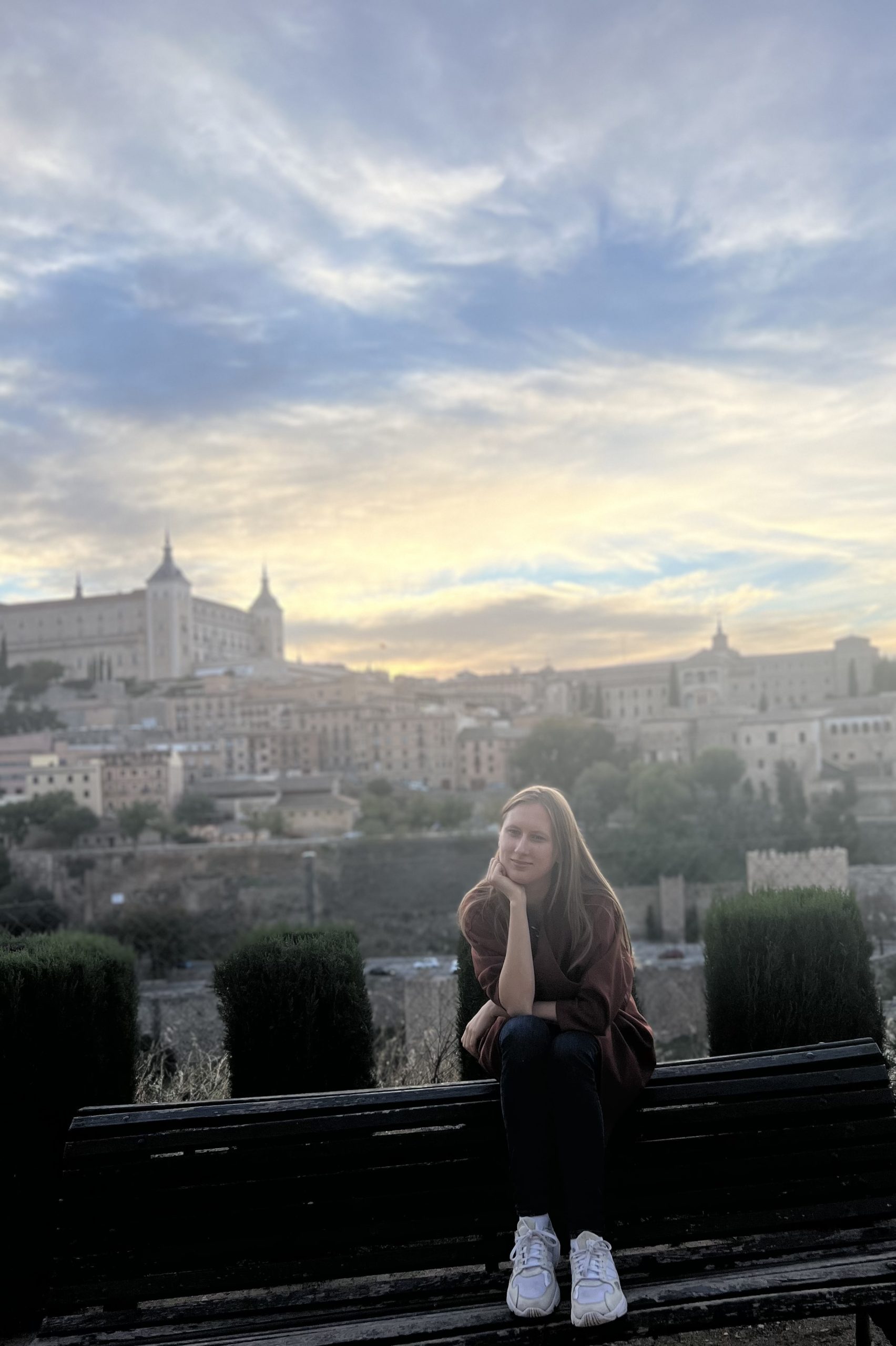
As a VIEWS volunteer, I also represent the organization at volunteering fairs and local outdoor events, as well as assist in organizing activities like the “Dinner in the Dark” and workshops on visual impairment awareness. These experiences have allowed me to test myself in new roles, such as public speaking.
Like anything else, volunteering has its challenges. However, from my perspective, these are not due to the structure or organization of the project itself. At first, I struggled with the ubiquitous roadworks and changes in public transport schedules, which forced me to traverse Liège on foot. The only time I was late for work was when I trusted TEC’s bus service. I learned my lesson! Adjusting to Belgium’s rainy weather also took time. According to my friends, I was unlucky to encounter a year where spring arrived later than usual.
Another challenge was cohabiting with a fellow volunteer who isn’t exactly “my kind of person.” We’re quite different, and it was hard to find common topics to discuss at first. However, working in different places and spending time out with friends or attending extra activities means we don’t have much time to cross paths, which works out well.
Returning to the positives, my greatest joy comes from participating in the morning FLE classes with adults in Philippe’s group and preparing exercises for them. Working with children at the homework school is more challenging and requires greater energy, but it’s also very rewarding. It motivates me to expand my language skills, general knowledge, and ability to respond creatively in various situations, such as answering questions about nature, history, or even math.
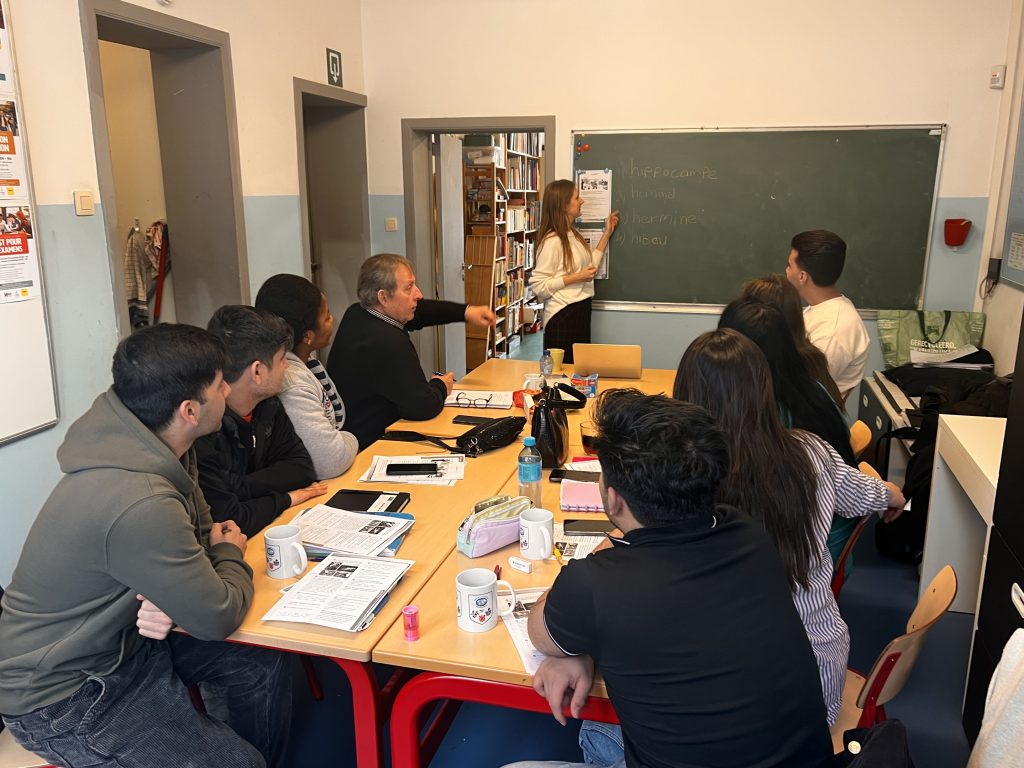
I’m particularly proud of earning the respect and friendship of older students. Building a friendly rapport with teenagers initially seemed impossible, given my age, but we’ve managed to create a pleasant and cheerful atmosphere during our meetings. Alain, my supervisor, has played a big part in fostering a positive environment. His humor and leadership have built a team where everyone feels valued and appreciated, and each person’s efforts are recognized. No matter how intense our day as volunteers might be, we knew everyone was giving 100% to support the students. I could always turn to any colleague with a question about math, language, or even behavior management and received help, often accompanied by laughter.
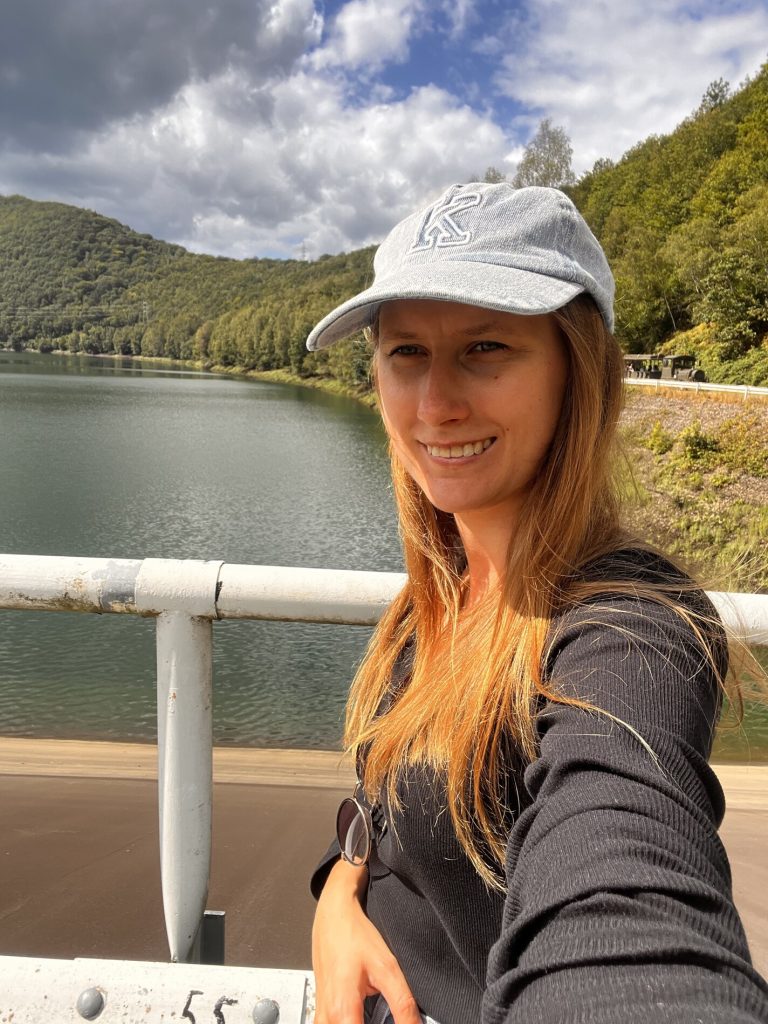
Volunteering isn’t just about work. While I’ve already mentioned the wonderful friendships I’ve made, I’ve also had the chance to travel. Over these eight months in Belgium, I explored many places in and around Liège. The Blue Card saved me a significant amount of money, crucial for a volunteer’s modest budget. Traveling solo has also boosted my independence and confidence, a mindset I hope to carry back with me to Poland.
Living in a multicultural environment has been another enriching experience. Spending several months surrounded by people from all over the world has taught me more than any book could. Meeting new people, learning about their cultures, hearing their stories, trying new dishes, learning new languages, and discovering that despite our differences, we can connect and enjoy each other’s company has been incredibly fulfilling.
My volunteer journey ends as I begin working for the Polish Space Agency (POLSA). It feels like a beautiful full circle: I left for Belgium because I couldn’t find an exciting job, and now I’m returning home having found one.
